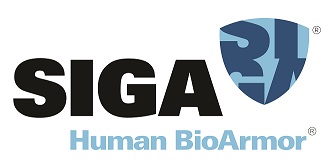The holders of the Common Stock and the Preferred Stock shall be entitled to dividends, when, as and if declared by the Board of Directors of the Corporation, payable at such time or times as the Board of Directors may determine.
Subject to the determination of the Board of Directors with regard to the Preferred Stock, in the event of any liquidation, dissolution or winding up of the affairs of the Corporation, whether voluntary or involuntary, all remaining assets and funds of the Corporation available for distribution to its stockholders shall be distributed in equal amounts per share and without preference or priority of one class of common stock over the other.
Notwithstanding the foregoing, any and all Common Stock and Preferred Stock, whether issued or outstanding prior or subsequent to the Effective Date (as defined in the Third Amended Chapter 11 Plan of the Corporation, dated April 7, 2016 (the “Plan”) as confirmed by Order of the United States Bankruptcy Court for the Southern District of New York (the “Bankruptcy Court”) (Chapter 11 Case No. 14-12623 (SHL), dated April 8, 2016) (the “Confirmation Order”)), shall be subject to all of the terms and provisions of the Plan, including, without limitation, the cancellation of any such shares of Common Stock and Preferred Stock to the extent provided in the Plan.
No action may be taken by the stockholders of the Corporation by their written consent without a stockholders’ meeting. Notwithstanding the foregoing, after such time, if any, that the New Common Stock (as defined in the Plan) is issued to PharmAthene, Inc. as provided in the Plan, then any action may be taken by the stockholders of the Corporation by written consent without a stockholders’ meeting.
No stockholder of the Corporation shall by reason of his or her holding shares of any class have any preemptive or preferential right to purchase or subscribe to any shares of any class of the Corporation, now or hereafter to be authorized, or any notes, debentures, bonds, or other securities convertible into or carrying options or warrants to purchase shares of any class, now or hereafter to be authorized, whether or not the issuance of any such shares, or such notes, debentures, bonds or other securities, would adversely affect the dividend or voting rights of such stockholder, other than such rights, if any, as the Board of Directors, in its discretion from time to time may grant, and at such price as the Board of Directors in its discretion may fix; and the Board of Directors may issue shares of any class of the Corporation, or any notes, debentures, bonds, or other securities convertible into or carrying options or warrants to purchase shares of any class, without offering any such shares of any class, either in whole or in part, to the existing stockholders of any class.
FIFTH: The number of directors of the Corporation shall be such as from time to time shall be fixed by, or in the manner provided in, the by-laws of the Corporation. No election of directors need be by ballot unless the by-laws so provide.
SIXTH: The Corporation hereby expressly elects not to be governed by Section 203 of the General Corporation Law of Delaware.
SEVENTH: No director of the Corporation shall be personally liable to the Corporation or its stockholders for monetary damages for breach of fiduciary duty as a director, provided, however, that this provision shall not eliminate or limit the liability of a director (i) for any breach of the director’s duty of loyalty to the Corporation or its stockholders, (ii) for acts or omissions not in good faith or which involve intentional misconduct or a knowing violation of law, (iii) under Section 174 of the General Corporation Law of Delaware, or (iv) from any transaction from which the director derived an improper personal benefit.
EIGHTH: The Corporation shall indemnify, in accordance with and to the full extent now or hereafter permitted by law, any person who was or is a party or is threatened to be made a party to any threatened, pending or completed action, suit or proceeding, whether civil, criminal, administrative or investigative (including, without limitation, an action by or in the right of the Corporation), by reason of his or her acting as a director of the Corporation on the Commencement Date (as defined in the Plan) or at any time thereafter (and the Corporation, in the discretion of the Board, may so indemnify a person by reason of the fact that he or she is or was an officer or employee of the Corporation or is or was serving at the request of the Corporation in any other capacity for or on behalf of the Corporation on the Commencement Date or at any time thereafter) against any liability or expense actually and reasonably incurred by such person in respect thereof; provided, however, that, the Corporation shall not be obligated to indemnify any such person (i) with respect to proceedings, claims or actions initiated or brought voluntarily by such person and not by way of defense, or (ii) for any amounts paid in settlement of an action effected without the prior written consent of the Corporation to such settlement. Such indemnification is not exclusive of any other right to indemnification provided by law, agreement or otherwise.




